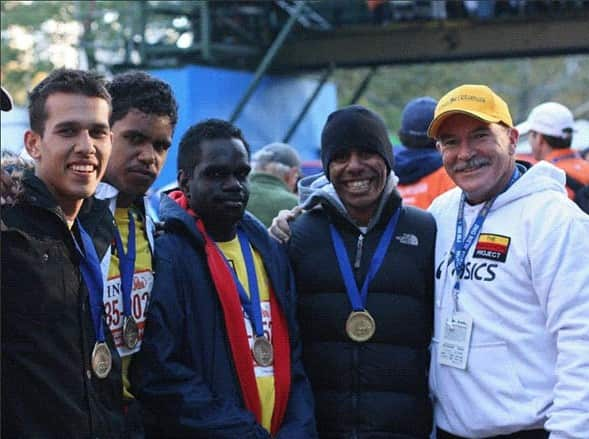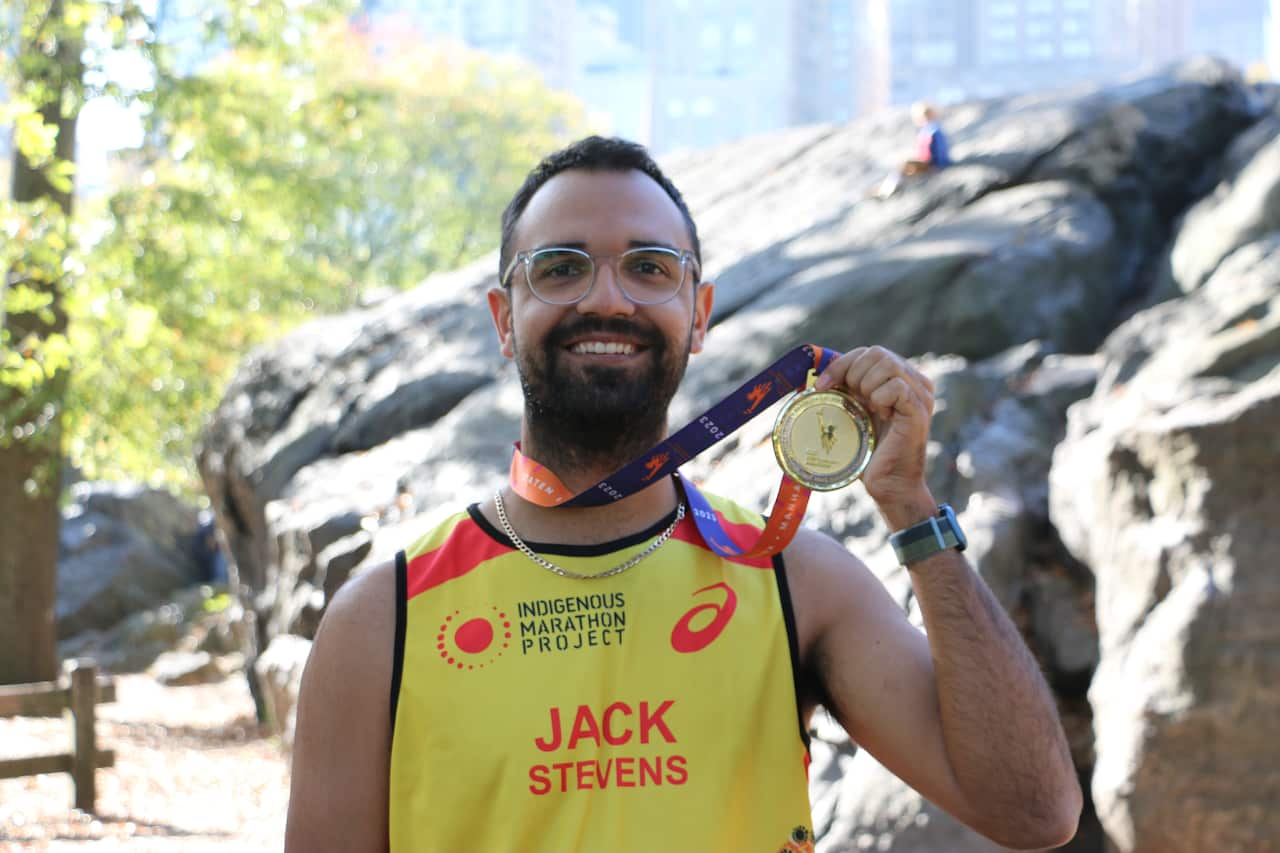For a long time, Blake Griffith felt as though he was running away from life.
“I’ve had a bit of a journey with my mental health and there’s been days and even weeks where I’ve shut out the world," he told NITV.
“You know, struggled to get out of bed and just do the simple things to take care of myself.”
But things are very different for the Kunjen and Yorta Yorta man these days, discovering a love of running.
“Running is so empowering, it’s so freeing. You’ve got your Country underneath you and the Mob always behind you supporting you as well.”
Now is preparing to run across the finish line at the world’s largest marathon, in New York City.
But swapping suburban Sydney for the streets of Manhattan is still a daunting prospect to Griffith, who has no prior long distance running experience.
‘Run, sweat, inspire’
Griffith forms part of the 12-person Indigenous Marathon Project (IMP) squad.
He was selected from a cohort of more than 320 applicants for the six-month health, well-being and leadership program.
'Run, sweat, inspire': that’s the mantra that embodies this year’s IMP squad and also the mission of the Foundation, which was established by world marathon champion, Robert de Castella, in 2009.
Within a year of its inception, four racers had already created history as the first Indigenous runners to compete in New York City.

The operation has only scaled up since then.
“It doesn’t matter how fast or how slow they go, when they go to the starting line, they commit … and that’s incredible to see," said de Castella.
The founder also believes training for a marathon is a test in mental fortitude.
“Pain makes you strong, pain’s an opportunity to draw on your purpose and your why, to come up with a reason to endure a little bit of discomfort and a little bit of pain.”
A vehicle towards change
A proud Gunggandji man, Jack Stevens is a former graduate of the program and this year’s Head Coach and Program Manager, responsible for managing squad training.
“IMP isn’t like a traditional marathon training program where you've got 12 or 18 months to get ready for the marathon distance," said Stevens.

"We take people with no running experience whatsoever to train up and complete their first marathon in under six months too."
When asked why he was drawn to running, Stevens’ answer was simple – it’s faster than walking.
“Understanding that burdens like chronic disease and also just a range of other health factors that affect our communities and … if we walked towards change, we wouldn’t get there fast enough.
“We use running as the vehicle or the catalyst to get there faster.”
From run leaders, to racers, Indigenous and non-Indigenous supporters of the organisation, de Castella believes those involved with IMP, “want to run side by side with … Indigenous Australia.”
“They don't want to be in front, they don't want to be behind. They want to be side by side.”
For Griffith, who is preparing for the November marathon the focus is not on how he’ll finish the race, but why he’s running in the first place.
“I’m very excited to go across the world and show how deadly our peoples are.
“We can set big goals. We can run marathons. We can do pretty much anything we set our mind to.”

